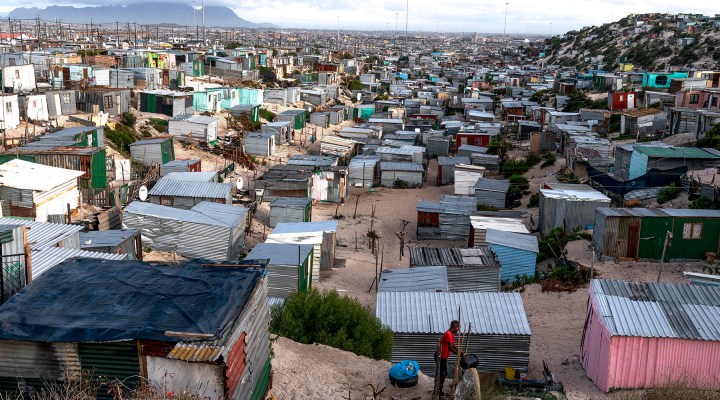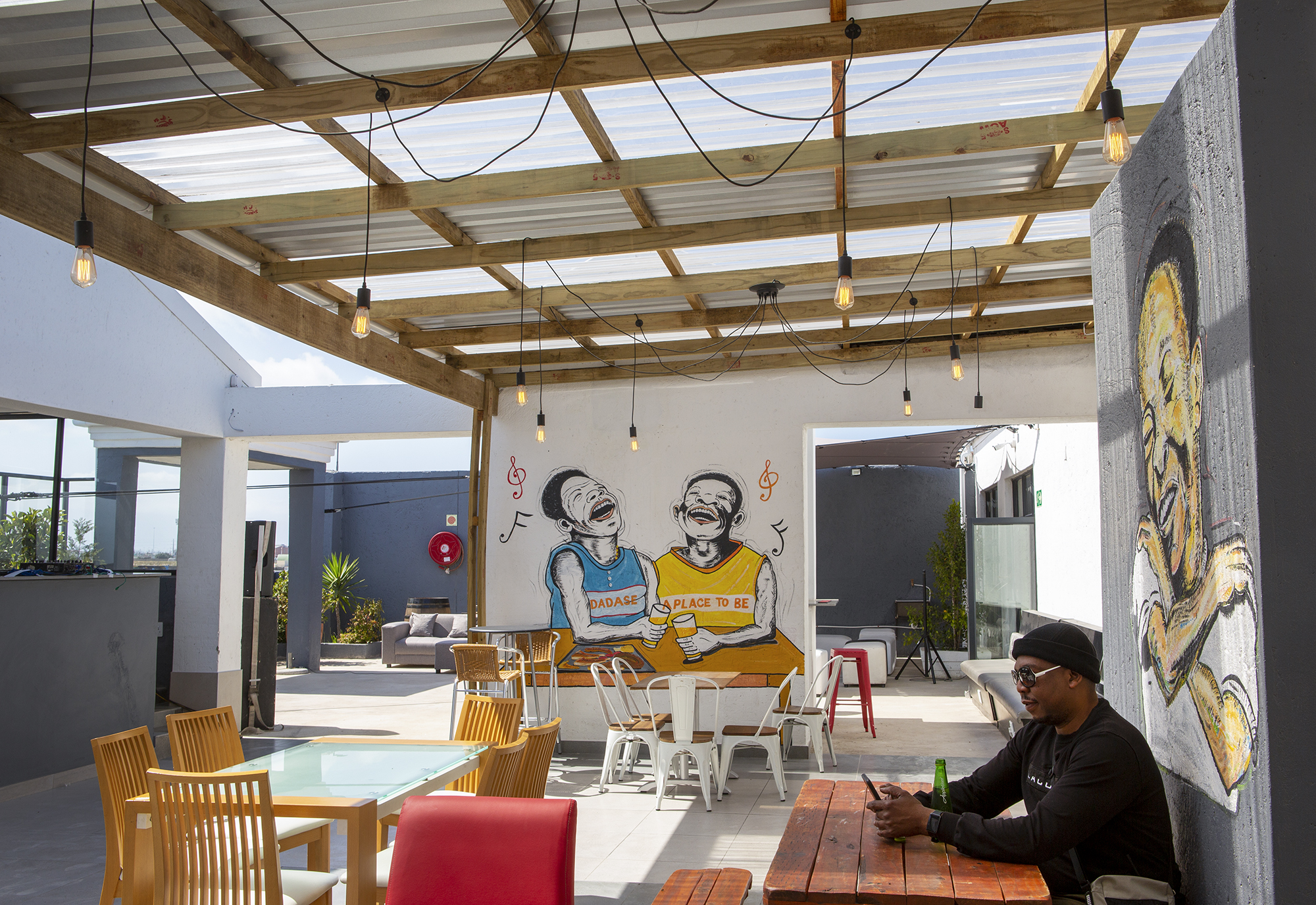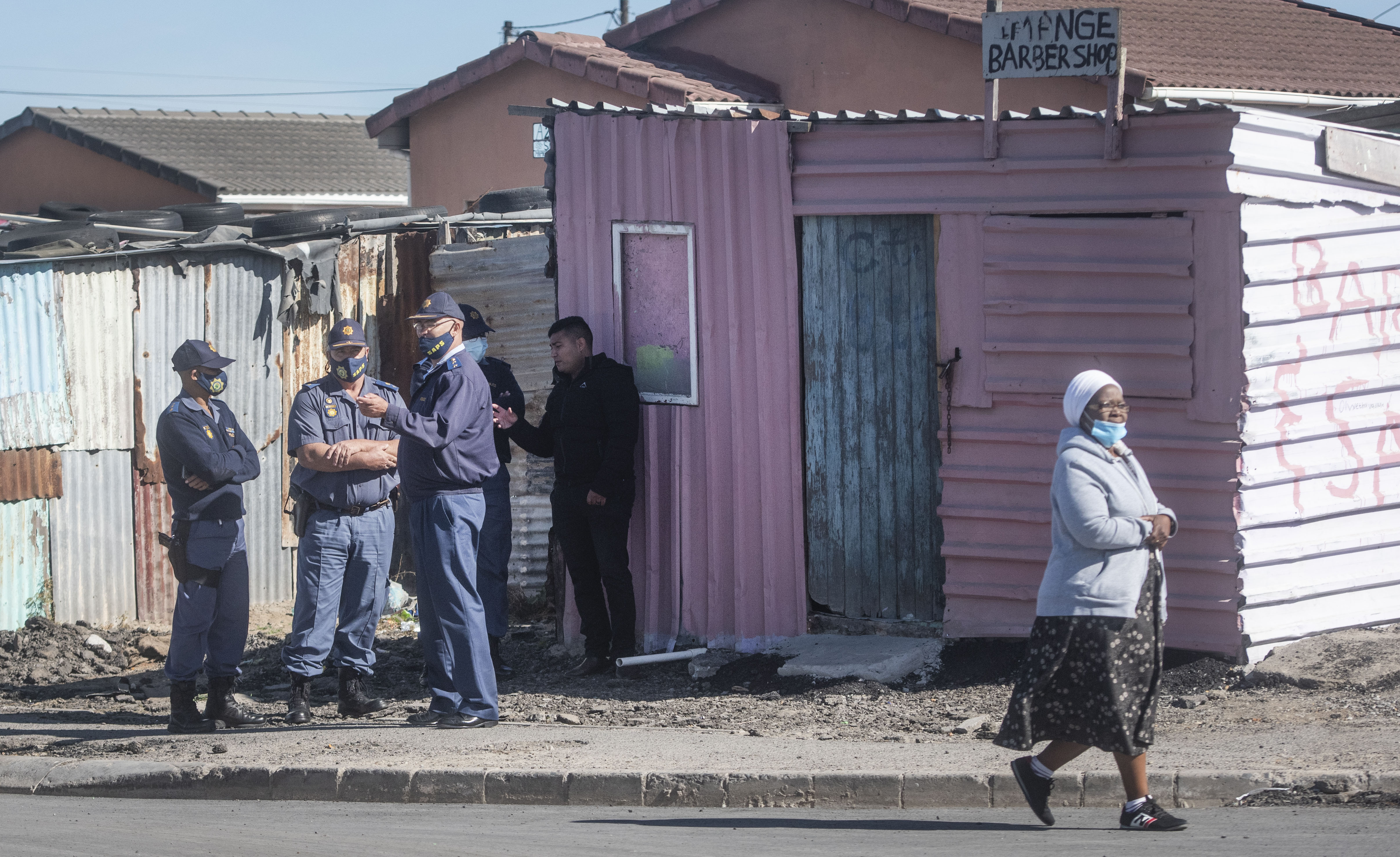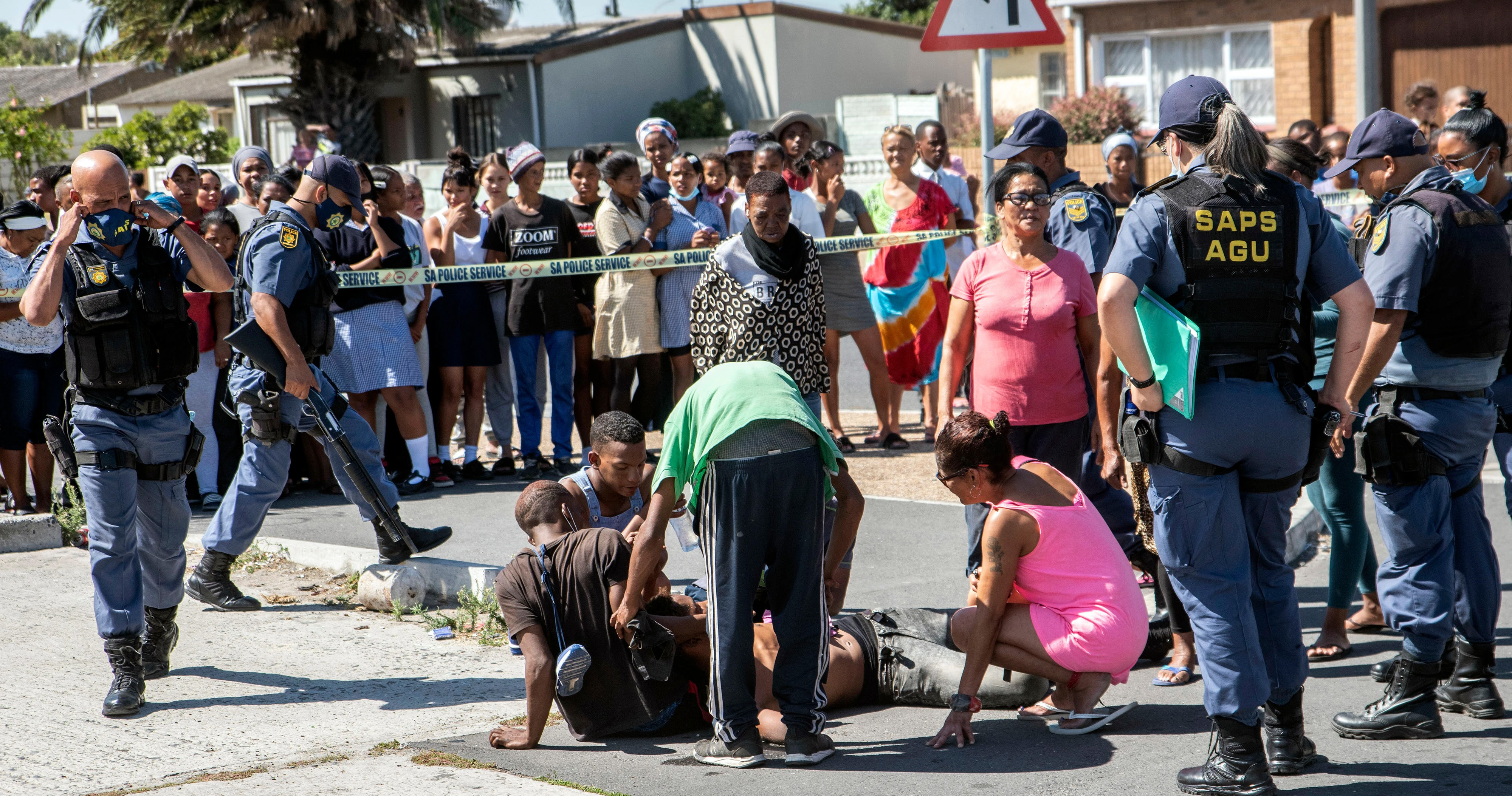GROUND LEVEL FEATURE
Khayelitsha businesses push back against rampant crime and ‘protection’ rackets as criminals rule the roost

‘Khayelitsha is not a jungle’. This is the slogan for a community campaign to fight back against criminal groups responsible for deadly turf battles, dragging down the image of this fast-growing, extensive suburb in Cape Town and making life treacherous for its residents.
To effectively do business in Khayelitsha, you either have to be well-known — meaning you grew up in the area — or pay extortionists for ‘protection’ against crime.
Business owners operating in Khayelitsha fear their children will be unable to take the reins without huge risk, as many grew up outside of the area.
Nevertheless, business owners are putting on a confident face in the hope that Khayelitsha will turn the tide and enterprise will return. Community members have coined the slogan “Khayelitsha is not a jungle” to instil hope.
Resident Abongile Mnisi explained that the slogan was conceptualised to inspire others.
“If you notice, whenever a new place is opened or someone achieved something and they are from Khayelitsha, the slogan will be included in congratulatory messages on social media. We cannot be known for killings and hijacking only, Khayelitsha is not a jungle.”
Khayelitsha, meaning ‘new home’ in isiXhosa, is generally believed to be the largest and fastest-growing township in South Africa, with an estimated population of 451,616.
With a population density of 10,000 people per square kilometre, Khayelitsha is situated just over 30 kilometres outside Cape Town’s central business district. The township was established following the implementation of the Group Areas Act under the then-apartheid government.
Over the years, the area has become known for its entrepreneurial spirit and people hustling to make a living.
Khayelitsha is also known for its lively entertainment venues, which are always buzzing during the weekends. But all this is threatened by rampant crime, mass shootings and extortion.
Climate of fear
Over the past two years, over 11 mass shootings have been recorded. Daily Maverick reported on the recent 27 September shooting, which occurred a day after the police minister’s anti-crime imbizo in the area.
Another five people were shot in Harare, Khayelitsha on 11 October. Three died and two are in hospital.
Recently, Police Minister Bheki Cele revealed that of 83 murders recorded in just seven days in the province, most were around the Cape Metro which includes Khayelitsha.
Many businesses are unwilling to comment on the impact of crime out of fear they will be targeted or face repercussions from criminals.
“We grew up in Khayelitsha,” said local businessman Malibongwe Dadase, 40. “The pandemic brought us many challenges. The new informal settlements have proved to be a challenge because back in the day we knew people who are involved in crime and they did it elsewhere and not in Khayelitsha.”
There have been 1,025 land occupations on City of Cape Town-owned land since the pandemic started.
Dadase recently opened Dadase’s Shisanyama Lifestyle — a restaurant and entertainment space inspired by Mzoli’s Place in Gugulethu.

Malibongwe Dadase poses inside Dadase’s Shisanyama lifestyle, which opened up recently in Khayelitsha. 11 October 2022. (Photo: Shelley Christians)
Dadase is known for his entrepreneurship, which began by selling fat cakes from a shack in Site C. He ventured into development and now owns several properties and businesses.
He said that there are many young men, mostly over the age of 18, from these informal settlements who are living by the gun.
“But we cannot stop our dreams because of people like that. Suppliers cannot even deliver to our businesses because of the crime. Most people involved in businesses in the area are young and unlike our elders, we cannot give in and stop operations.”

Sbusiso Gwala at Dadase’s Shisanyama lifestyle in Khayelitsha. 11 October 2022. (Photo: Shelley Christians)
Dadase referred to spaza shops which were mainly locally owned as recently as a decade ago but are now in the hands of foreign nationals. When extortion rackets began multiplying in 2017, foreign-owned businesses were chiefly targeted and crimes frequently under-reported.
Dadase said the next generation will battle to run their inherited businesses.
“They will be unknown and become easy targets. Whatever cash flow we make, we invest it somewhere like in property because what we have here is temporary.
“My children will really struggle if they were to take over from me. They do not know the township language, who to go to for assistance and honestly, they are not made for this.”
He hoped the youth could be saved from the jaws of crime by drawing inspiration from hard-working people like himself.
“Nothing is ever given to you on a silver platter. I had to work hard and I am still working hard. But hard work and commitment will get you far in life. Young people should avoid debt and trying to impress people on the streets.”
Lack of investment
Crimefighter Vincent Domingo said businesses struggle to survive because of crime and few have secured bank loans since the end of the pandemic.
“Many business owners have stopped operations because of crime. Law enforcement officers are not in control to make sure that businesses are protected. This now affects the local economy because it stops the flow of money.”
He added that communities could not stand united if law enforcement officers are not showing courage.
Visit Daily Maverick’s home page for more news, analysis and investigations
Policing in Khayelitsha
Khayelitsha has three police stations namely, Harare, Lingelethu and Khayelitsha Police station. Most recently, a mobile police station was added to Makhaza after years of campaigning by the community.
A Khayelitsha Commission of inquiry in 2014 found that the allocation of resources to police stations was unfair and irrational. Recommendations by the commission included building a new police station in Makhaza and that the National Commissioner of police should review the police’s human resource allocation system.

Police across the road from the scene of a shooting in Site C in Khayelitsha where five people were shot and killed and a sixth person died at a medical facility on May 09, 2022 in Cape Town. It is reported that organised crime detectives have opened murder dockets for investigation. (Photo: Gallo Images/Brenton Geach)
The commission was set up following complaints of inefficient policing in Khayelitsha voiced by a group of NPOs including the Social Justice Coalition, the Treatment Action Campaign, Ndifuna Ukwazi, Equal Education and the Triangle Project.
The Makhaza station is still in the planning phase despite a promise in 2018 by the police minister that it would be complete by 2022.
Meanwhile, crime in the area continues to rise and many of the commission’s recommendations have not been adopted.
Subsequently, the SJC went to the Equality Court where it was declared that the allocation of police resources in the Western Cape unfairly discriminates on the basis of race and poverty. However, the court postponed a ruling on remedying these problems to a later date.
The SJC together with the Legal Resources Center approached the Constitutional Court in April 2021 for leave to appeal the Equality Court’s “refusal” to grant a remedy.
But in a majority judgment, Acting Justice David Unterhalter ruled that the Constitutional Court did not have the jurisdiction to enforce the duties of the Equality Court when no order had been made by the Equality Court.
Patterns of crime
Khayelitsha’s police stations recorded a combined 126 murderers in the recent quarterly crime statistics. There were also 163 reported sexual offences, 25 kidnappings, 759 robberies with aggravating circumstances and 156 car hijacking cases in the three months of reporting.
29 people have been killed in mass shootings in the area since March this year, mostly related to extortion rackets.

A man was shot on March 17, 2022 in Heideveld, a few hundred metres from where Minister of Police Bheki Cele was speaking to residents at a street imbizo after a spate of deadly shootings in Manenberg and Khayelitsha, Cape Town. (Photo: Gallo Images / Brenton Geach)
Extortion rackets demand what is called a ‘protection fee’ from businesses. City of Cape Town Mayoral Committee Member for Safety and Security, JP Smith said businesses that refuse to pay this fee risk being ransacked, owners kidnapped, hurt and even killed.
They operate in groups and often have a ring leader to whom extorted money is sent. Daily Maverick has learnt that such illegal syndicates are also operating from prisons, targeting Khayelitsha, Gugulethu, Philippi and Nyanga.
Police landed their biggest arrest in connection with mass shootings and extortion in Khayelitsha. Yanga ‘Bara’ Nyalara is currently in jail and is believed to be an organised crime mastermind.
He faces 31 charges, including 18 counts of murder, six of attempted murder, illegal possession of firearms and ammunition, dealing in and possession of drugs and contravention of the Prevention of Organised Crime Act.
Police have added Wandile Tofile, Manelisi Ngumla and Lundi Zweni to the case. The arrested trio is believed to have also been involved in mass shootings in Khayelitsha and Gugulethu. On their last appearance at Cape Town Magistrate’s Court on 4 October, they were informed the case was close to being transferred to the Western Cape high court for trial.
Although facing serious charges, Nyalara appears to be loved by his community in Site C and has attracted crowds of supporters calling for his release during court appearances.
Nyalara is said to have donated groceries and goods to the community and allegedly opened his own “mini police station” where people could report crimes which he and his associates would address.
Community members say crime has risen since his arrest.
“Bara could protect us unlike the police,” said one resident. “Cars are being hijacked now. People killed and the crimes he did were not against his own people. He is trying to make a living like the rest of us.”
Lusanda Gqamana was also arrested on 25 July in connection with the murder of three people on 16 July in Site C.
Kwezi Mphummzi, 34, Mveleli Nobuzana, 36, and Howard Mjamba, 50, were killed during the shooting.
Thembani Kobe and Sipho Mgijima were also arrested in connection with the shooting and killing of five people in Endlovini on 14 March. The suspects are expected to make court appearances again in October.
In August, national power utility Eskom was forced to withdraw repair services after workers were approached by gangsters demanding protection fees.
Construction companies contracted for projects are also being forced to pay protection fees by criminals, causing housing projects to be delayed.
Boko Haram vs the Guptas
Khayelitsha and other townships have been in the grip of two rival gangs, namely Boko Haram and the Guptas, which have led to a string of killings.
Peter Gastrow from Global Initiative Against Transactional Crime, said that the task of dislodging extortion networks in Khayelitsha is complex because extortion groups have become entrenched. In addition, individual members of the police reportedly have links with and work for the groups, and an atmosphere of fear and intimidation is already pervasive.
“Rather than suggesting specific steps that could be taken to mobilise a community response in Khayelitsha to counter extortion, key role players should meet in order to explore and develop a coordinated and longer-term strategy, and plan to counter extortion and enhance governance to reverse state collapse in parts of this urban area,” said Gastrow.
He added that such role players should include national, provincial and local government, relevant community interest groups, and business interests.
Police spokesperson Captain Frederick Van Wyk said that extortion was top of the Western Cape SAPS’s priority list and “we will do everything possible to bring perpetrators to book.”
He encouraged communities to make use of the recently launched extortion hotline. “Callers may remain anonymous and all information will be treated with confidence.”
The DA-led City of Cape Town municipality and Western Cape government have been pushing for the devolution of policing powers so as to be empowered to curb crime in the province. But the proposal was shot down by President Cyril Ramaphosa.
Dr Derica Lambrechts, a Senior Political Science Lecturer at Stellenbosch University, said the fight against organised crime is not only the duty and responsibility of SAPS.
“A plethora of actors need to come together. These include safety and security organisations, civil society, businesses, local, provincial and national government.
“Essential to eradicate the expansion of organised crime, is socio-economic development of communities where these crimes are out of control; policing is just one facet of crime reduction. The problem with extorsion gangs is that they are informal groupings, and structure and operational procedures can change quickly.”
She added this makes the tracking of such crimes more difficult.
“What complicates matters further is low levels of state legitimacy in the communities where protection rings operate. Thus, levels of compliance by the community are low and also trust in the SAPS.” DM



















 Become an Insider
Become an Insider
Comments - Please login in order to comment.